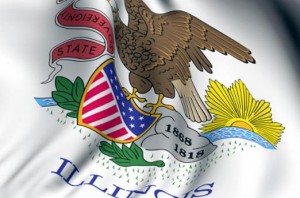There is a lot of talk about state run health insurance exchanges. Dont worry, private health insurance policies like Blue Cross & Humana are NOT going anywhere. If you read the post below you will see that nobody really knows how how the health care exchange in Illinois is going to work, not even the people in Springfield.
SPRINGFIELD Illinois- Almost no one wants the state running Illinois new health care exchange.
 Health care advocates, unions, doctors’ groups and business people testified in unison this past week before the Illinois Legislature’s rule-making body, the Commission on Government Forecasting and Accountability, that the state should have a limited role in running the health care exchanges, but they were divided on their reasons.
Health care advocates, unions, doctors’ groups and business people testified in unison this past week before the Illinois Legislature’s rule-making body, the Commission on Government Forecasting and Accountability, that the state should have a limited role in running the health care exchanges, but they were divided on their reasons.
Each state must create an exchange where people can shop for and buy competitive health insurance plans, as required under the federal Patient Protection and Affordable Care Act. Each state can form its own exchange.
At its most basic, an exchange would be a marketplace, a one-stop shop. Some states are looking at online exchanges or physical exchanges or both, but no single model has emerged.
Various advocates supported the state establishing regulations for the exchange but not running its day-to-day operations. The groups included AARP, which represent senior citizens; Planned Parenthood, which speaks for women’s health issues; and labors unions, including the Service Employees International Union and United Food and Commercial Workers.
Laura Minzer, executive director of the Healthcare Council for the Illinois Chamber of Commerce, one of the state’s largest business groups, said her organization was concerned about a proposal from the Illinois Department of Insurance that would give Gov. Pat Quinn the power to appoint most of the people who would oversee the health care exchanges.
“We have some concerns in terms of the appointments (to the exchange) being largely from the governor,” Minzer said. “We believe this should be separate and apart from the politics” of the state.
Minzer said politics is driving the decisions that will shape Illinois’ health care exchanges. Lawmakers are trying to figure out whom they will pay to create an exchange and how it will be run. And they want a plan by the end of the fall veto session in early November.
“We still don’t know what it is that we’re doing with the exchanges,” Minzer said last week. “We feel that this has to be tackled in a bigger way, and six days of sessions is not enough time to do that.”
State Rep. Greg Harris, D-Chicago, said Illinois has to have an exchange up and running for federal approval by January 2013. If not, the federal government will impose its own exchange on the state. The exchange would start selling insurance in 2014.
“This is an immensely complex undertaking. It’s going to be expensive for somebody,” Harris said. “So there is a real caution not to make promises to folks now that we can’t keep if the ground changes underneath us.”
The ground is changing as challenges to the requirement in the federal health care law that would require everyone to buy health insurance make their way through the courts.
The U.S.. Court of Appeals for the 6th Circuit upheld the mandate last year. But the U.S. Court of Appeals for the 11th Circuit struck down the mandate earlier this month. The U.S. Supreme Court is expected to hear arguments once the cases move through the appellate process.
Lawmakers are scheduled to return for the fall veto session from Oct. 25 to 27 and again from Nov. 8 to 10. The big question is, who really wants the state of Illinois part of their healthcare decisions.



